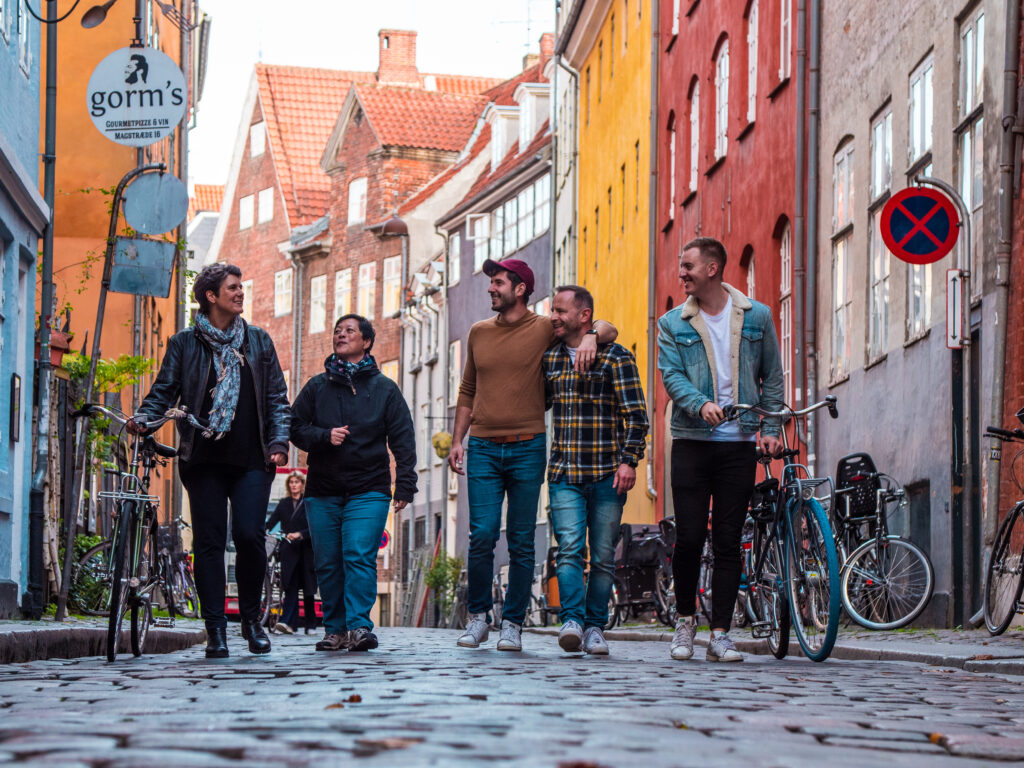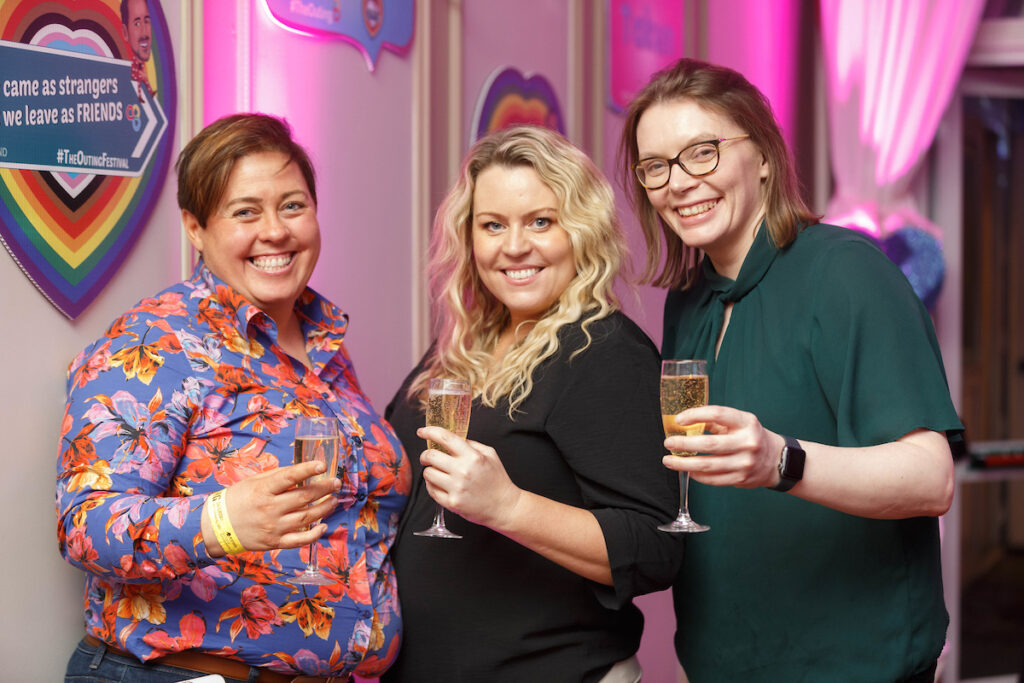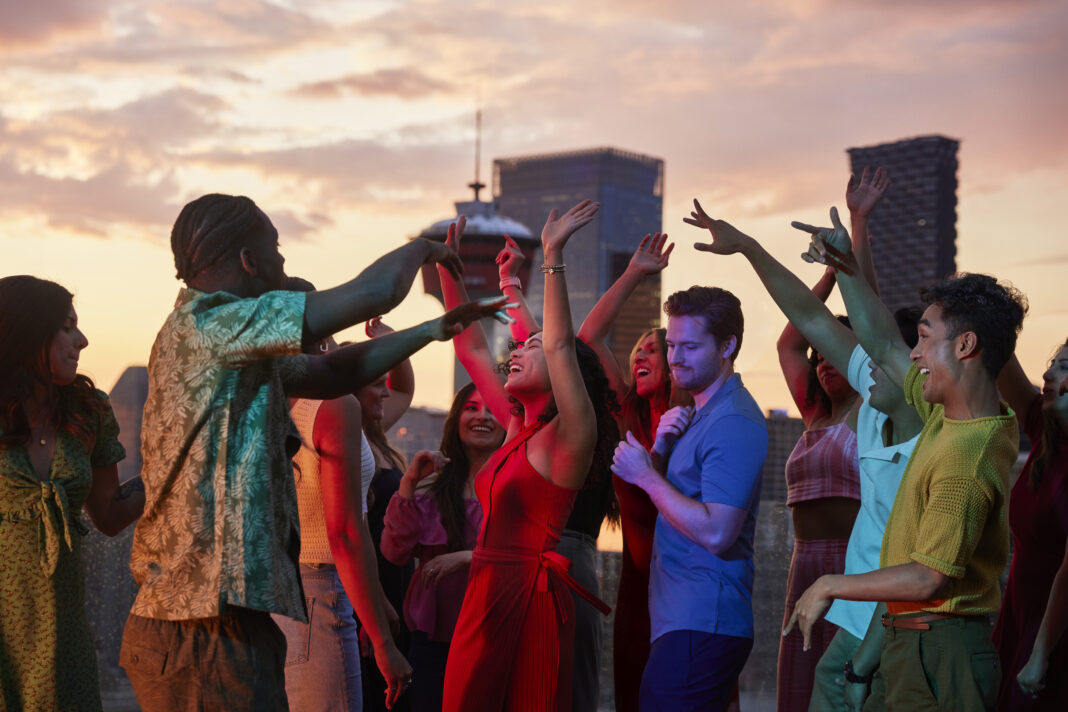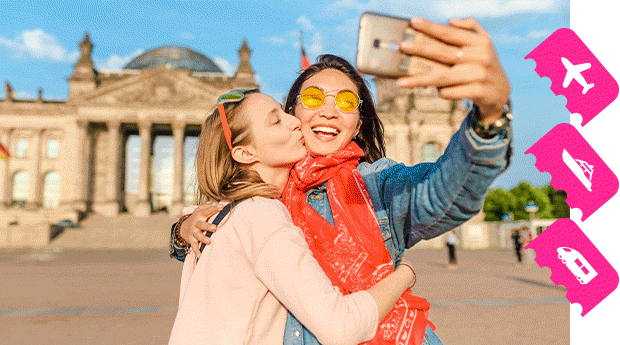We evaluate our own personal safety, comfort, empowerment, pleasure and joy by what’s in our immediate vicinity. Who is sitting next to us? And one of the trends I’ve noticed as editor-in-chief of Pink Ticket Travel is that LGBTQ2S+ travellers, whatever the global circumstances, are becoming increasingly confident about their place in the world and their right to explore it. They look around their immediate vicinity, see who is sitting next to them and declare, sometimes courageously, “I can be myself here.”
Though as a community we need to support LGBTQ2S+ people around the world, a traveller should never actively disrespect a culture they are a guest in. But through authentic good-faith encounters—the more smiles the better—smart LGBTQ2S+ travellers can make the world a friendlier place for all of us. Here are our thoughts on the queer year in travel.

Enjoying more and more queer-loving bubbles
Increasingly, places around the world are not only okay with us, they’re actively welcoming us. So many destinations these days explicitly court LGBTQ2S+ visitors, depicting us in their marketing and foregrounding venues that are queer friendly. Drag queens are in brochures and on websites. Yes, they’re doing it for our money. But that’s not an insult—these same destinations could easily be marketing instead to sports-crazed straight men. They want us because a) they genuinely support us, b) our patronage signals to non-LGBTQ2S+ people that a destination is safe and perhaps cool and c) there’s a perception that we spend more than straights.
To the list of legendary “queer bubble” destinations like Provincetown and Berlin, we can add places like Mexico City, Taiwan, huge chunks of Europe, Canada and certain American states, as well as major city centres in much of South America, to the list of places where same-gender hand-holding, rainbow bracelets and blue hair don’t attract any attention whatsoever. Or attract compliments. The number of places where we can let down our defences and stop worrying about who’s looking is increasing.
We’re everywhere even when we’re less visible
Even in places that have fewer LGBTQ2S+ people and venues, places where our rights are more limited, places bereft of rainbow flags, there’s almost always something. A monthly party, a café frequented by local queers, a boutique selling flamboyant clothing run by a local “bachelor,” an online community driving private gatherings. These days, any traveller who wants to make an effort to meet local LGBTQ2S+ people, and is proficient at using search engines and messaging on dating/hookup apps, can do so.
Experiencing queer culture in these less-open places does require more thought and planning. Not only for one’s own safety, but for the safety of locals who might find themselves at risk if, say, they’re spotted fraternizing with an openly gay foreigner…or any foreigner. But those who have the confidence, the cultural sensitivity, the chameleon-like skills and the knack for reading a room can pretty much go anywhere they want.
Of course, in some countries, the stakes can be very high. Some have the punishment of prison or even death for homosexuality. It is possible for queer spaces to be raided by police or be targeted by governments. Never put yourself or others in danger.

Finding kinship with locals or fellow travellers
When we think of travel, we often picture airports, beaches, hiking trails, monuments, museums, restaurants and, for those who like to go out, nightclubs and bars. But that’s just infrastructure. It’s the people you rub shoulders with in these settings that make a trip fun and memorable.
Group travel is a dependable approach for encountering kindred spirits. There’s never been more choice. Dozens of tour companies cater to different letters of the LGBTQ2S+ acronym and different demographics within it (older, younger, party-oriented or not, cultural, outdoorsy, posh, affordable). And because someone else is handling the logistics, group travel frees up your attention span to focus more on experiences and special moments.
If you’d rather fraternize with locals, that’s become much easier, too. Online communities and dating/hookup apps help us find potential friends and lovers before we arrive at a destination. Translator apps make cross-language conversations possible. Events of all shapes and sizes—Prides, sporting competitions, concerts, cultural festivals, circuit parties—give us a sense of community and help break the ice. Whether you’re into bowling or Taylor Swift, there are LGBTQ2S+-oriented or friendly events happening in the places you want to go, and you’re sure to meet your own kind there if you want to.
For every government that targets us, there are communities that embrace us
Having restrictions or laws targeting your identity and/or the things you love, want and need is scary. News headlines make it feel like the world is getting nastier. You don’t have to be a genius to notice that there are a lot of asshole political leaders around the world, many of whom use LGBTQ2S+ people as scapegoats to distract from their lack of vision and competence. Homophobic and transphobic policies can deeply affect local queer communities—and we should always be on the side of these communities.
More than policies and laws, though, what most affects the quality of a trip is the attitude of the people around you. Washroom laws matter little if a venue manager and patrons hold such laws in contempt. If people don’t notice or take issue with your gender nonconforming appearance, it’s not a problem. You may not be able to get married in many destinations, but that doesn’t mean the people you’re interacting with think any less of you. If you’re from a very progressive place and are visiting a less progressive one, locals might not have the language you’d expect, but that doesn’t automatically mean they wish you any ill will.
In most of the world, away from the political arena and its grandstanding, most people are cool, helpful and generous. Show respect and most people will respect you back. In these trying times, compassion is what will make this world liveable.


